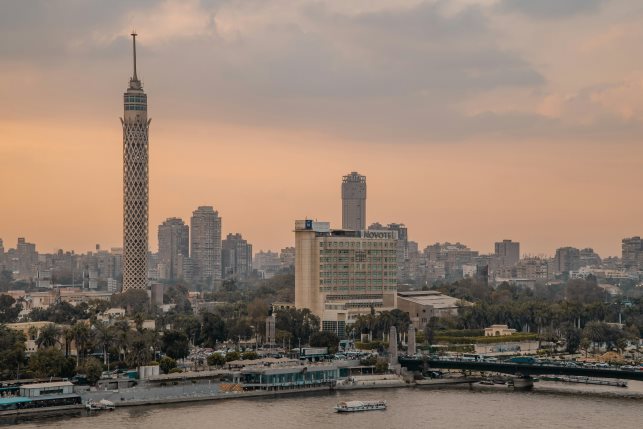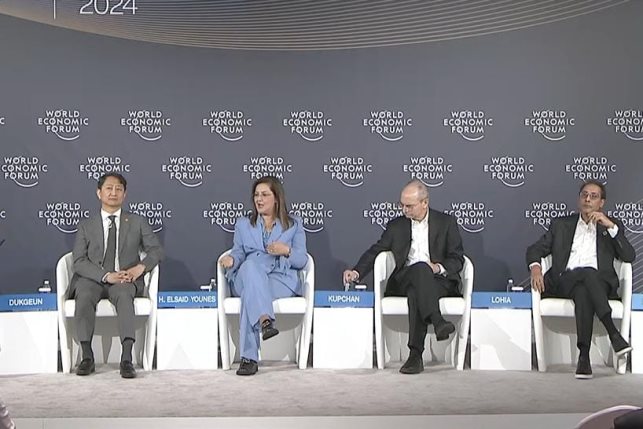Egypt’s New Industrial Incentives: How Advantageous Can They Prove to be?
A look at the recently announced package of incentives targeting industrial projects

President Abdel Fattah El-Sisi has recently directed the government to grant target industrial projects an impressive package of incentives that is hard to be overlooked by investors.
The incentives include exempting strategic industries from all types of taxes, except for the value-added tax, for up to five years to enhance the national industry. The Cabinet will issue a detailed resolution defining these industries, provided that the projects are operational within a maximum of three years.
The exemption may be extended for five more years for a number of these industries, on condition that they achieve specific targets based on the level of foreign investment and the regulations determined by the Cabinet.
It is even possible to reclaim up to 50% of the land value if the project is implemented within half of its designated period. The “golden license” may be expanded to cover all projects aiming to entrench local manufacturing.
How beneficial can these incentives be?
Capital Economics Middle East and North Africa economist James Swanston believes that Egypt’s shift toward orthodoxy continues to tread a fine line. Proposed efforts to attract foreign investment are positive for growth, but could stoke fears about the commitment to tight fiscal policy.
In a recent report, Swanston added that these incentives coming alongside the state privatization drive, which officials said they now expect to raise $5 billion by mid-2024, constitute more signs that policymakers are trying hard to attract direct foreign investment into Egypt.
“This should also help to raise foreign currency liquidity in the economy,” he stated.
“However, while this may help to alleviate strains on Egypt’s external position, it may reignite investors’ worries over the commitment to tight fiscal policy. In the past week, sovereign dollar bond spreads and credit default swap premia have risen to their highest levels since June. That said, we continue to think that fears of a sovereign default are overdone given the large primary surplus and not too onerous FX debt repayment schedule,” Swanston added.
Economist and Deputy Head of the Arab Union for Social Development in the Arab League Ashraf Ghorab agrees with Swanston and believes the announced package will attract more foreign direct investment and local investments, while also eliminating routine, bureaucracy, and challenges faced by investors. Highlighting the state’s attempts to localize technology and develop industries in line with global technology standards, Ghorab lauded the president’s decisions to support industrial and production sectors, especially strategic and technological industries.
He explained that the incentives will reduce expenses and production costs for manufacturers. Given the economic circumstances and the increased production costs, the benefits will allow them to expand their projects, increase output, enhance market supply, and offer products at suitable prices. These measures will also provide more employment opportunities and lower unemployment rates.
He pointed out that the expansion of the golden license will reduce time and effort for investors and attract more foreign and local investors. Ghorab highlighted that such decisions had been preceded by many incentives and facilitations that support national industries and contribute to enhancing local manufacturing. At the time, the incentives were issued by the Higher Council for Investment, led by President Sisi. Ghorab noted that the state is determined to continue the plan to deepen local manufacturing and provide necessary facilitations, including removing obstacles that hinder investors.
Ghorab continued that the development of the industrial and production sectors will increase their contribution to the Gross Domestic Product (GDP). This contribution will grow, especially with Egypt’s accession to BRICS and the initiation of trade transactions between Egypt and BRICS countries using local currencies. This will help secure production materials, leading to increased production and employment. He also noted that the state is committed to a plan to localize the production of 152 industrial products instead of importing them, encouraging the private sector to manufacture these products to reduce the import bill.
In a statement to the press, Deputy Chairman of the Industry, Commerce, Small, Medium, and Micro Enterprises Committee in the Senate Mohamed El-Manzalawy described the incentives as “historic, significant, and unprecedented.” He called on the government to immediately enforce these decisions and promote them via various local, Arab, and international media outlets, emphasizing that the main goal of President Sisi’s decisions is the transition to a productive economy, not just a consumer-oriented one.
El-Manzalawy urged the government to establish policies that ensure a strategy of import substitution by focusing on local manufacturing of imported products. This would save significant amounts of foreign currency, reduce the import bill, and increase Egyptian exports.
The Senate member said the recent decrees have supported and encouraged national strategic industries, generating wide-ranging satisfaction among all investors in general, and particularly in the industrial sector. He called on businesspeople and investors within the industrial sector to seize this opportunity to enhance the sector.
Member of the Senate Abdo Abu Aisha considered President Sisi’s decisions as supportive of the national industry on the one hand, and a significant turning point and great encouragement for capital inflow into the industrial sector on the other. He highlighted that the state’s future vision seeks to increase the growth rates of this sector and its contribution to the Gross Domestic Product, as well as enhance the volume and quality of Egyptian industrial exports to foreign markets.
Abu Aisha also emphasized President Sisi’s directives to continue building integrated industrial clusters and zones, supporting transformational industries, and prioritizing certain fields. These fields possess Egypt’s manufacturing foundation, competitive advantages, and opportunities on both regional and global levels. “This marks a true leap for industry in Egypt and the New Republic,” he said.
Member of the House of Representatives Ahmed Othman stated that these incentives will drive the wheel of production and economic development, as well as stimulate and encourage the private sector to collaborate with the state in establishing development projects. He noted that these incentives send a reassuring message to investors that the state is serious about removing investment barriers in the industrial sector, eliminating bureaucracy, and facilitating procedures.
Othman is confident the incentives will contribute to enhancing the state’s efforts to localize industries and support productive sectors.
This will in turn lead to increased exports and a reduction in imports. “The state is working on removing any obstacles to industrial investment, whether they are legislative, executive, or procedural.”





